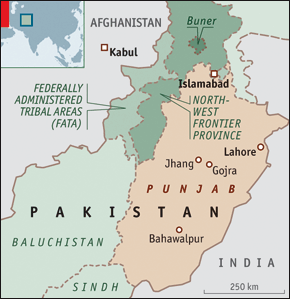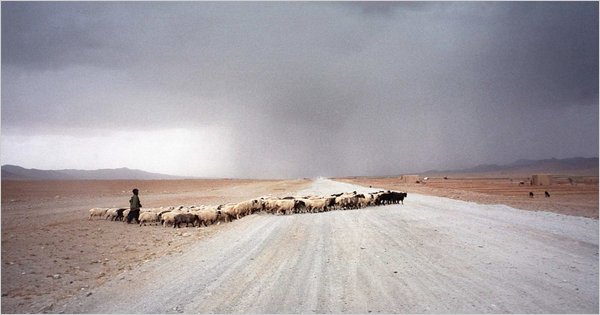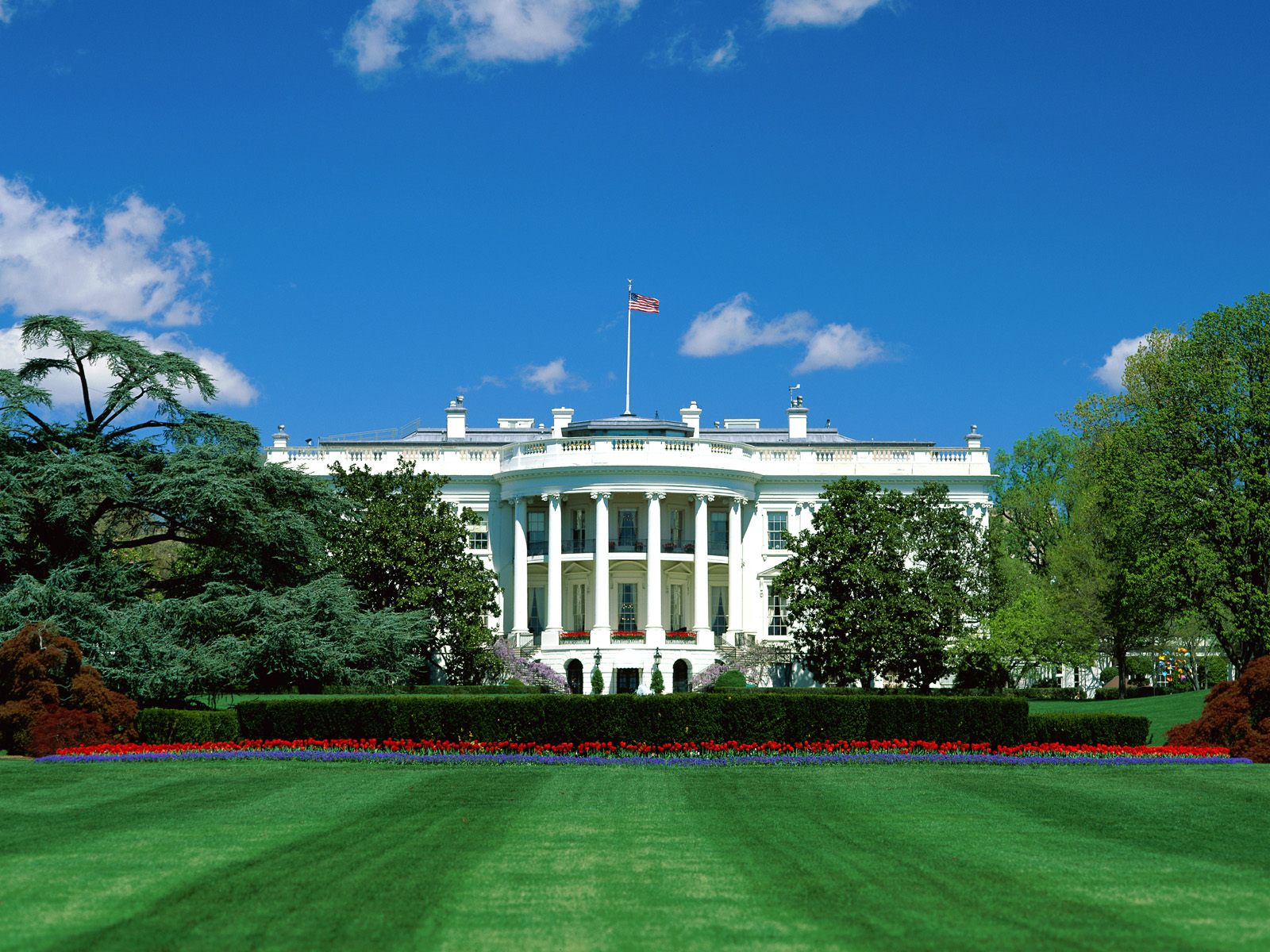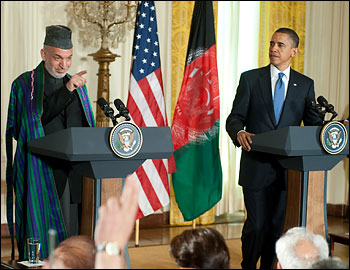 Nice piece by Greg Jaffe in WAPO that explores what it means to be a frontline SysAdmin-style officer: part-warrior, part-diplomat, part-anthropologist, part-nationbuilder . . . just a lot more moving parts than the usual Leviathan role of ass-kicker-and-then-leave. Focus is Lt. Col. Robert Brown.
Nice piece by Greg Jaffe in WAPO that explores what it means to be a frontline SysAdmin-style officer: part-warrior, part-diplomat, part-anthropologist, part-nationbuilder . . . just a lot more moving parts than the usual Leviathan role of ass-kicker-and-then-leave. Focus is Lt. Col. Robert Brown.
Story comes in two parts.
The career background is classic: This guy has been SysAdmin his entire career, just missing out on the Leviathan's last great romp.
Brown was commissioned as an armor officer in 1991 just months after U.S. tanks sliced through Saddam Hussein's Republican Guard in a demonstration of the post-Vietnam Army's raw power.
Two Iraq tours in 2004 and 2007 opened Brown's eyes to the limits of his Army and himself. He avoided "we can do the impossible" pep talks that other commanders used to fire up their troops. His goal was to build the Afghan government and bring his soldiers back alive.
The vast majority of his time was spent quizzing Afghan elders and officials on decades-old tribal disputes and intrigues. In the evenings he scoured the Internet for information on the HiG and its history in Nurestan province during the Soviet era. "There is so much here that is opaque to us," he said.
The dances-with-wolves isolation and vulnerability:
The outpost, surrounded by soaring mountains on all sides, was isolated and hard to defend. "It felt like we were living in the bottom of a Dixie cup," one of Brown's soldiers said.
Brown eventually decides that his unit's presence is uniting two wings of an insurgency that could otherwise be split. He asks to close the outpost and the decision to do so takes a while. In the meantime, his unit suffers a massed attack by local insurgents:
Eight U.S. troops were killed in the Oct. 3, 2009, battle at Combat Outpost Keating, making it one of the deadliest fights for Americans of the Afghan war. For soldiers, the harsh reality of combat has scarcely changed in the decades since Vietnam. To survive, the outnumbered Keating grunts relied on their mutual devotion and marksmanship.
What makes Keating different from past battles is what happened afterward. A decade of fighting in Afghanistan and Iraq has forced battlefield commanders to accept that victory in today's wars is less a matter of destroying enemies than of knowing how and when to make them allies. This new kind of war has compelled midlevel officers such as Brown to take on new roles: politician, diplomat, tribal anthropologist.
"My goal is to get people to stop shooting at my soldiers and support government," said Brown, a wiry, quick-talking officer whose three combat tours have imbued him with modesty, skepticism and a little self-doubt.
After the Kamdesh battle, an insurgent leader known as Mullah Sadiq sent word to Brown that he wanted to drive his more radical Taliban rivals from the area around the Keating outpost. Sadiq, who had been on U.S. kill-or-capture lists for five years, needed money and Brown's help brokering a peace deal with Afghan government officials in Kabul. The offer was Brown's chance to ensure his eight soldiers didn't die in vain.
"We don't think Sadiq is a Jeffersonian Democrat," Brown wrote of Sadiq in a February e-mail from Forward Operating Base Bostick in Naray. "But he is rallying public support to the Afghan government and against the Taliban. . . . And frankly, that may be good enough."
From part two:
Sadiq wanted 50 assault rifles, $20,000 and a promise that U.S. forces would not kill him. In return, he promised to turn against more-radical Taliban insurgents and to begin to work with the Afghan government.
Sadiq's proposition gave Brown a chance, however tentative, to achieve a victory of sorts in his corner of Afghanistan and redeem the loss of his men.
"This has the potential to work," Brown told his commander.
It has become a given within the U.S. military after nearly a decade of grinding battle in Afghanistan and seven years in Iraq that U.S. forces cannot kill their way to victory. Enemies must be persuaded to lay down their weapons through a mix of negotiation and force. Grievances must be understood and wherever possible addressed. These principles are at the core of the military's coming campaign in Kandahar, which U.S officials are touting as the most important battle of the nine-year war.
Brown is a firm believer in this new American way of war, one that has forced him to puzzle through dauntingly complex tribal feuds and to overcome a fractured Afghan government that often prefers to fight enemies, such as Sadiq, rather than cede influence to them.
Brown, 41, has struggled to make sense of Sadiq, who insists on dealing with the Americans solely through intermediaries. Some Afghans describe Sadiq as a religious scholar and brave commander. Others maintain that he is a warlord and extremist.
"The bad guys aren't bad because they were born bad," Brown said from his base in Naray. "What no one ever teaches you is how to get to the bottom of the story. No one ever teaches you to ask, 'Why is Mullah Sadiq the way he is?' "
The deal struck sounds right out of Anbar in Iraq:
Every few nights, one of Sadiq's deputies telephoned Brown to work out the terms of the deal. By March, the insurgent commander had assembled an informal police force of about 230 locals, some of whom had probably taken part in the Keating attack. Brown arranged for the United States to pay the men about $25,000 a month until the Interior Ministry formally accepted them as police.
But the problems are two-fold: 1) does the Afghan government really want to broker such deals? and 2) what's the nature of US staying power?
In early April, the deal with Sadiq began to fall apart. Senior Afghan officials in Kabul banned Zaman (local PD chief) from sending any of his forces to meet up with Sadiq's fighters.
"They are worried that we are trying to give Kamdesh district to the HiG," Zaman said. "They don't want us to give these guys a say in the government."
The hedging in Kabul also unnerved Sadiq, whose representatives immediately called Brown. "We are surrounded by 1,000 Taliban, but our government doesn't accept us!" one of Sadiq's deputies screamed over the satellite phone. He demanded Brown's help in acquiring 600 assault rifles, 16 Ford Ranger pickup trucks and two dozen machine guns and grenade launchers for the new Kamdesh police force.
Brown explained that the weapons had to come from the Afghan Interior Ministry, which was refusing to send any arms to Kamdesh. Sadiq's representative hung up on Brown in mid-sentence.
To get the deal back on track, Brown and George pressed the Afghan officials to write a letter to the central government in Kabul detailing the need to move forces into the valley and to better arm Sadiq's police force.
"After much cajoling, we have gotten all the Afghan players supporting the resources for the police in Kamdesh," Brown wrote in an e-mail in early May. Sadiq didn't get all the weapons he wanted, but he got some.
A new U.S. unit was scheduled to replace Brown's cavalry squadron at the end of May. He knew the next U.S. commander wouldn't have the same incentive to close the deal with Sadiq. Brown also had ample reason to question Kabul's commitment to working with Sadiq.
"We want this to happen more than the Afghans do," he said he often worried.
The reconciliation ceremony has not been held, but in recent days hundreds of Afghan army and police forces have been inching along the perilous road to Kamdesh to link up with Sadiq. Taliban commanders have been assembling a force to stop them.
Brown said he does not know exactly what to make of the maneuvering, although he detects signs of progress. "The momentum change has been significant," he wrote in an e-mail.
He expects to be home in Colorado in about two weeks. Kamdesh will be a new commander's fight.
The usual problem of being there only so many months, learning enough to start working the situation, and then being yanked out just as things might mature into something better. Here, they don't for reasons beyond Brown's control.
Nice reporting by Jaffe, showing the great difficulty and complexity of the task, but also highlighting, in an anecdotal way, how Afghanistan probably won't work out, COIN-wise, like Iraq. Just too many competitors fighting for influence in a zero-sum manner.
 Thursday, June 17, 2010 at 1:21AM
Thursday, June 17, 2010 at 1:21AM  The victims of terrorists bury their dead
The victims of terrorists bury their dead
 Afghanistan,
Afghanistan,  India,
India,  Long War,
Long War,  Pakistan | in
Pakistan | in  Citation Post |
Citation Post |  Email Article |
Email Article |  Permalink |
Permalink |  Print Article
Print Article 



















